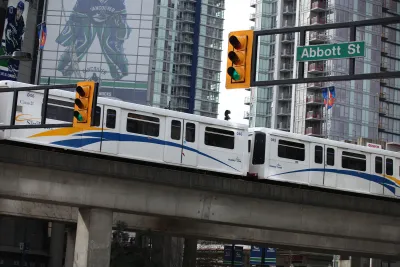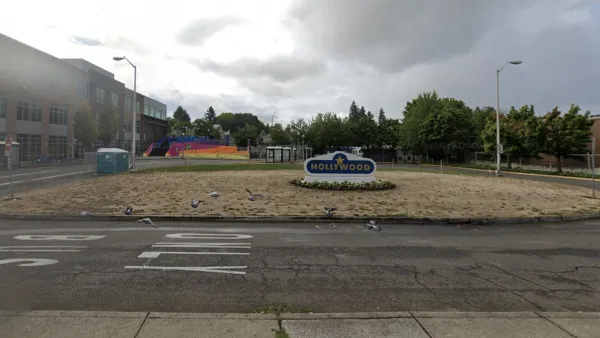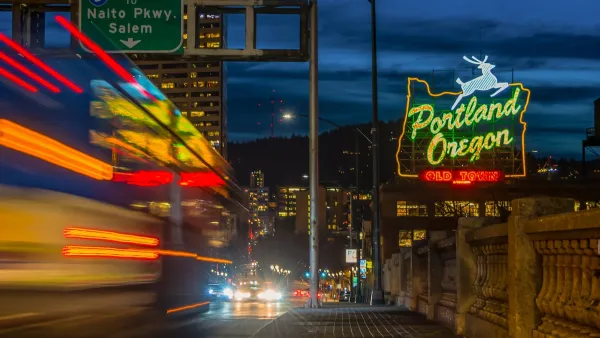Jarrett Walker examines the desirability of slow transit as argued by University of British Columbia Professor Patrick M. Condon in support of a vast streetcar network for Vancouver.

Walker inserts himself into the Broadway rapid transit debate in Vancouver to prove a point about the value of slow versus rapid transit. Walker picks his fight with Condon, who proposes building a streetcar network for Vancouver, rather than extending the city's existing driverless metro system, SkyTrain, to his own campus, UBC, which lies at the western tip of the city. While the Portland Streetcar, which Condon praises as a model system, did little for that city's mobility, it did much for infill redevelopment, acknowledges Walker.
Was that a unique case though? "Is it really true, as Condon suggests, that sustainable urban form, with fine-grained mixtures of uses that permit most of life's needs to be met close to home, will grow better around slow transit, like a streetcar, as opposed to something fast like a subway?" asks Walker.
"As I think about the great urban spaces I've seen, at many scales, on many continents, I am simply not convinced that highly civilized urban places benefit from transit being slow When I think of really healthy, vibrant, exciting neighborhoods in Europe, or in New York City, I think of places with subway stations," argues Walker. "Once people are used to rapid transit, it comes to function as a driving force in determining where people can live at high density, and enables the continued growth of highly sustainable dense urban form."
Thanks to Jessica Hsu
FULL STORY: is speed obsolete?

National Parks Layoffs Will Cause Communities to Lose Billions
Thousands of essential park workers were laid off this week, just before the busy spring break season.

Retro-silient?: America’s First “Eco-burb,” The Woodlands Turns 50
A master-planned community north of Houston offers lessons on green infrastructure and resilient design, but falls short of its founder’s lofty affordability and walkability goals.

Delivering for America Plan Will Downgrade Mail Service in at Least 49.5 Percent of Zip Codes
Republican and Democrat lawmakers criticize the plan for its disproportionate negative impact on rural communities.

Test News Post 1
This is a summary

Test News Headline 46
Test for the image on the front page.

Balancing Bombs and Butterflies: How the National Guard Protects a Rare Species
The National Guard at Fort Indiantown Gap uses GIS technology and land management strategies to balance military training with conservation efforts, ensuring the survival of the rare eastern regal fritillary butterfly.
Urban Design for Planners 1: Software Tools
This six-course series explores essential urban design concepts using open source software and equips planners with the tools they need to participate fully in the urban design process.
Planning for Universal Design
Learn the tools for implementing Universal Design in planning regulations.
EMC Planning Group, Inc.
Planetizen
Planetizen
Mpact (formerly Rail~Volution)
Great Falls Development Authority, Inc.
HUDs Office of Policy Development and Research
NYU Wagner Graduate School of Public Service




























